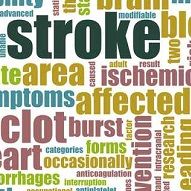Article
Some Stroke Patients Need Screening for Depression
Author(s):
Study shows when to screen stroke patients for depression.

Patients who experience depression soon after a stroke, and those with a declining general self efficacy (GSE) following a stroke should be screened for depressive symptoms, according to the results of a recent study.
Matthias Volz, MSc, of the Department of Psychology at Humboldt University in Berlin, Germany, and colleagues authored the study, which was published in the Journal of Affective Disorders.
“The purpose of this study was to examine the independent influence of GSE on depression six months later while controlling for established risk factors,” say the researchers in describing their aim. They add, “We assumed high GSE to unfold protective influence on later PSD [post stroke depression] and to remain relatively stable between assessments.”
A total of 88 patients were recruited to participate in the study, and of those 29.5% met the DSM-IV criteria for depression at follow-up. The authors say, “The main finding of this study was that early depressive symptoms and perceived social support predicted later PSD.” They go on to add that “early depressive symptoms represented the most important predictor for depression six months post-stroke.”
Another factor that was associated with depressive symptoms was that of declining self-efficacy. The researchers say, “This effect might be explained by dissatisfaction with rehabilitation following high expectations after stroke, in particular for patients with high GSE, since these patients are prone to set themselves even higher goals.” They suggest that addressing recovery expectations during rehabilitation could be helpful.
The more patients felt they had social support, the more protected from depression they appeared to be, a finding which supports previous research. The authors say, “This emphasizes the need to develop cost-effective ways to engage isolated patients after stroke and to further examine the influence during later stages when patients struggle maintaining a sustainable social network.”
The researchers conclude by saying, “Our results support early screening for depressiveness within the first weeks after stroke and the application of interventions focusing on goal selection to reduce the risk of later PSD.”
For further reading:
http://www.hcplive.com/journals/internal-medicine-world-report/2006/2006-05/2006-05_24
http://www.hcplive.com/medical-news/medicare-to-cover-depression-screening
http://www.hcplive.com/journals/internal-medicine-world-report/2006-02_07/2006-04/2006-04_33





